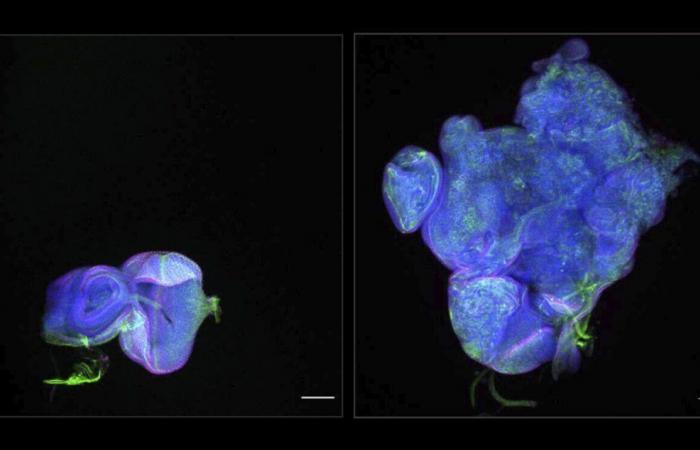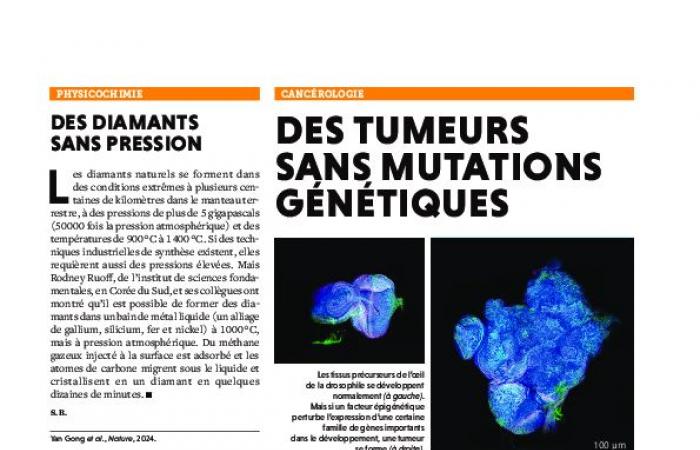For decades, it was thought that tumors formed exclusively from mutations, by definition irreversible, accumulated in our genes. These mutations alter, among other things, genetic expression, disrupting the functions of cells which then proliferate in an uncontrolled manner, lose their ability to differentiate and see their metabolism disrupted. Recently, a team from the Institute of Human Genetics (CNRS/University of Montpellier), under the co-direction of Anne-Marie Martinez and Giacomo Cavalli, discovered that the presence of mutations is however not essential for the formation of tumors. .
In some cases, epigenetic mechanisms collaborate with mutations in the progression of cancers. These mechanisms regulate gene expression without altering the DNA sequence itself. A well-known example is biochemical modification by methylation of DNA or histones (the proteins around which DNA wraps). By causing a more or less significant compaction of the DNA, the genes are more or less accessible for their transcription, which modulates their expression, activating or inhibiting it. Therefore, can such alterations, transient or not, be sufficient to trigger the development of a tumor, even in the absence of mutations affecting the genome? This is what the biologists wanted to verify. They looked at a family of proteins, polycombs, responsible for a mechanism for repressing the expression of genes important for normal development. Indeed, these proteins play an essential role in determining cell fate by controlling genes involved in cell division, differentiation and polarity, by modifying the molecular state of histones.
Using a technique called RNA interference, researchers reversibly reduced the concentration of polycombs in a Drosophila larva (Drosophila melanogaster) in full development. The transient loss of these proteins at an early stage of development induced the formation of tumors which were characterized by abnormal tissue architecture, excessive cell growth and loss of their differentiation capacity. However, no permanent mutations have been observed. Furthermore, the researchers noticed that these tumors remained stable even after protein levels returned to normal, later in development.
These results indicate that a simple transient disruption of epigenetic mechanisms may be sufficient to induce tumor formation, even in the absence of genetic mutations. However, these epigenetic mechanisms can be naturally altered by environmental factors such as particular diets, drug treatments or exposure to certain chemical compounds. This observation therefore calls for a review of the factors taken into account in medical analyzes relating to the screening and treatment of cancers.
Download the PDF version of this article
(reserved for digital subscribers)







